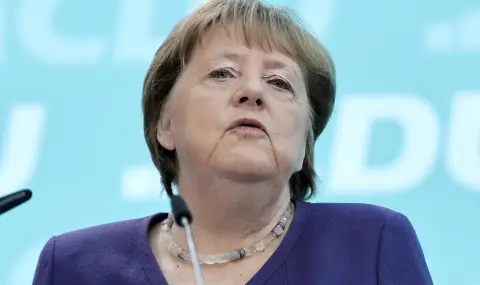Former German Chancellor Angela Merkel's recent criticism of the migration policy of the current leader of the conservative opposition, Friedrich Merz, has sparked renewed interest in the relationship between the two, BTA reports.
Merkel expressed dissatisfaction with Merz's proposed strict measures on migration, in particular opposing his approach to relying on the votes of the far-right party "Alternative for Germany" to push a resolution through parliament.
Merkel's flowery speech on the future of the CDU
During an event in Hamburg organized by the weekly "Zeit", Merkel gave a hesitant answer when asked about her preference between Merz and Robert Habeck of the Greens for the next chancellor. As the former leader of the Christian Democratic Union (CDU), Merkel preferred to avoid directly expressing support, but stressed that she has confidence in the CDU when it comes to economic tasks.
Economic challenges and internal conflicts in the CDU
With elections approaching at the end of the month, Merz is the favorite to be chancellor and could lead the CDU back to power after the end of the "Merkel" era. However, relations between Merkel and Merz are far from ideal. They became strained in 2002, when Merkel removed Merz from senior party positions and later expelled him from the CDU leadership altogether.
A period of withdrawal and a new beginning
After being marginalized, Merz left active politics and devoted himself to a career in the financial sector. However, after Merkel's resignation, he returned to politics as leader of the CDU and is ready to take on a leadership role in the party. Despite past confrontations, the two showed friendly relations at a ceremony to mark Merkel's 70th birthday in September, which offered hope for a truce between them.
Political tensions and the future of the CDU
With parliamentary elections approaching, the question of Germany's economic and political future is on the agenda. Merkel has stressed the importance of economic stability, but differences in political perceptions and strategies between her and Merz remain at the forefront, with their relationship cemented as a symbol of intra-party conflict and differences in political approaches to Germany's future.
